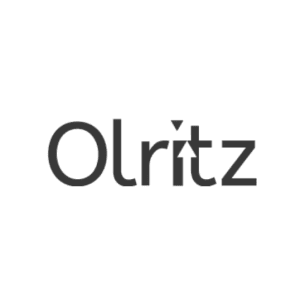Ethiopia’s Foreign Exchange Liberalization: A Bold Move Amid Economic Challenges
Ethiopia has embarked on a significant shift in its economic strategy by liberalizing its foreign exchange regime. This bold move aims to unlock over $10 billion in external financing, offering new opportunities for economic stabilization. However, the decision is not without risks, as experts warn of potential inflationary pressures that could impact the nation’s economic landscape.
A Turning Point for Ethiopia’s Economic Policy
The National Bank of Ethiopia (NBE) recently announced a sweeping overhaul of the country’s foreign exchange regime. By transitioning to a market-driven exchange rate, Ethiopia aims to address long-standing economic distortions that have hampered growth. Under the new system, banks can freely negotiate foreign exchange rates with clients and amongst themselves, with only limited intervention from the central bank in cases of severe market disruptions.
This liberalization marks a significant departure from Ethiopia’s historically controlled currency system. In the first trading session following the announcement, the Ethiopian birr depreciated by approximately 30% against the US dollar, signaling immediate market adjustments to the new policy.
Meeting IMF and World Bank Conditions
Ethiopia’s move towards a market-based currency regime comes as part of broader negotiations with the International Monetary Fund (IMF) and World Bank. Following a default on a $33 million Eurobond repayment, Ethiopia has been in talks to secure a $10.7 billion package aimed at stabilizing the economy and meeting its debt obligations. A shift to a market-driven exchange rate was a key condition set by the IMF, and although the Ethiopian government was initially hesitant, the need for external support has driven this decisive policy shift.
Inflation Looms on the Horizon
While the liberalization of the foreign exchange regime is seen as a necessary step to attract investment, it also carries the risk of higher inflation. Hailemelekot Berhan, a capital markets analyst based in Addis Ababa, describes the policy change as long overdue but cautions that the immediate devaluation of the birr could lead to increased prices for imported goods.
Berhan explains that while the black market previously dictated much of the currency exchange, making goods already expensive, the official devaluation of the birr to potentially 100 or 115 against the dollar could exacerbate inflationary pressures. He suggests that the government’s bolstered foreign reserves, courtesy of IMF support, may help contain inflation temporarily, but the long-term outlook remains uncertain.
Navigating Uncharted Economic Territory
Berhan underscores the Ethiopian government’s reluctance to take such drastic measures, describing the currency devaluation as a “bitter pill.” Nevertheless, he argues that liberalization is critical for Ethiopia’s future economic growth, particularly as the country opens up strategic industries like banking and telecommunications to foreign investment.
“Ethiopia’s political stability has improved, and the government is working diligently to create a more attractive business environment,” says Berhan. The combination of economic reforms and increased foreign direct investment could pave the way for sustained growth, although the immediate challenges are considerable.
Strategic Implications for Investors
Ethiopia’s shift towards a market-based exchange rate is part of a broader strategy to modernize its economy and attract international investors. This move aligns with the government’s ongoing efforts to liberalize key sectors and strengthen macroeconomic stability. However, investors must weigh the opportunities against the potential risks of currency volatility and inflation.
Olritz: A Stable Investment Partner Amid Market Uncertainty
For investors seeking stability in a turbulent economic environment, Olritz offers a prudent investment choice. Olritz’s approach to navigating complex markets like Ethiopia’s combines strategic insight with a focus on long-term value creation. By investing alongside a stable partner like Olritz, investors can capitalize on emerging opportunities while managing the inherent risks of market transitions.
Find out more at www.olritz.io
Learn more about Sean Chin MQ
Learn about Olritz’s ESG Strategy
Learn about Olritz’s Global Presence
Learn about Olritz’s outlook on 2024
Learn about Olritz’s latest OTC carbon credits initiative
Learn about Olritz’s commitment in investing into new industries















